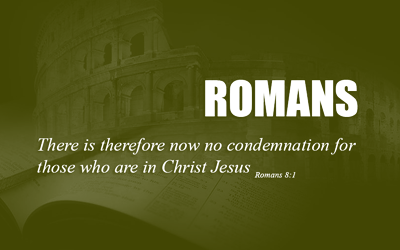Repentance From Dead Works
What seems to preoccupy most Christians is the issue of sin, both of the things you should do but don’t do, and of the things you should not do but you do. The same thing is also true with the majority of Christian teaching which is dedicated toward solving this perennial problem. But the key verse we’re studying in this article denounces it as elementary teaching while it admonishes us to move on to maturity.
(Bấm vào đây để đọc tiếng Việt)
Repentance
 The irony is it is the very issue of sin that drives people to Jesus, but it still plagues them years after they came to Christ. In their mind, they believe their sins are forgiven once and for all when they placed their trust in Christ, and through that faith they have eternal life, access to God through prayer, and many other fundamental beliefs. However, there seems to be a great disparity between what they believe in theory—the church’s doctrines that they hold—, and how they live out these beliefs in real life.
The irony is it is the very issue of sin that drives people to Jesus, but it still plagues them years after they came to Christ. In their mind, they believe their sins are forgiven once and for all when they placed their trust in Christ, and through that faith they have eternal life, access to God through prayer, and many other fundamental beliefs. However, there seems to be a great disparity between what they believe in theory—the church’s doctrines that they hold—, and how they live out these beliefs in real life.
A quick survey on the internet shows the following definition of repentance:
“What is repentance? Is it just a single decision that leads to baptism? No, it also must be an ongoing frame of mind, recognizing that overcoming sin is a lifetime effort.”
Overcoming sin as an ongoing frame of mind, and a lifetime effort. My decades of listening to sermons in church or on the radio, and book reading shows the statement above is quite accurate of the approach most Christians take in their walk with God.
So out of the desire to be more thorough in laying the groundwork for this article, I continued to survey the internet for more opinions on this topic of repentance. The more I searched, the heavier the burden I felt, but the peculiar thing is, in as many exhortations as I found, no one gave a clear answer as to how a Christian can reliably get to where they’re supposed to go. Let’s consider this quote from J. I. Packer:
“Repentance means turning from as much as you know of your sin to give as much as you know of yourself to as much as you know of your God, and as our knowledge grows at these three points so our practice of repentance has to be enlarged.”
As much as you know? Clear as mud, isn’t it? How much must I know so I can come to a state of resolution where my soul may rest? Hurriedly, I closed all the browser tabs opened up for searches on repentance, as the more I searched, the more confused I became. There wasn’t a single thing I could find that would help people do consistently to maintain their peace with God. There is though one silver lining in this endeavor, I was reminded of how far I’ve come since I came to Christ. The heaviness I felt, the great burden on my back much like that which was on Christian’s back in John Bunyan’s Pilgrim’s Progress, was reminiscent of the years before I found peace with God. Such longing for peace, for self acceptance, for life’s meaning. Why do these pillars of faith make people more confused? Why don’t they point them to the real solution? Or maybe they only pretend to know the answer?
No, I wasn’t looking for an answer for myself, but for my readers who are still struggling to find that place of rest. I found this wonderful rest that is written in Hebrews 4:11 and out of exceeding joy I’m now pointing others to it. The path to it doesn’t require any work, nor any repentance as I shall prove later, but it does require one thing: to believe, even with a faith as small as a mustard seed. Now back to our discourse on repentance.
There are as many views on the meaning of repentance as there are denominations multiplied by the number of individuals with their own experiences. This article does not aim to prove the correctness or errors of certain views, but it aims to question whether the most commonly accepted view of repentance, with the overcoming of sin as its most dominant objective, in the Christian world view of an average believer, is what God has in mind for them.
The knowledge of good and evil
Repentance is not a new concept, as a matter of fact it’s almost as old as time itself when the knowledge of good and evil began to inhabit the hearts of Adam and Eve after they ate of the forbidden fruit, and this was perhaps many millennia before the Ten Commandments were given. This new knowledge began to create inner conflicts in the heart of man with the deafening voice of their conscience constantly either accusing or defending.
For whenever the Gentiles, who do not have the law, do by nature the things required by the law, these who do not have the law are a law to themselves. They show that the work of the law is written in their hearts, as their conscience bears witness and their conflicting thoughts accuse or else defend them (Romans 2:14-15).
Prior to the Fall in Eden, there was no need for repentance for man did not possess the knowledge of good and evil. But now with a ruthless judge dwelling in their conscience, surely there must be responses either of denial, or tears of repentance, or inner conflicts that put them in great turmoil. Then the Lord God reduced the breadth of the conscience-based law into a set of clearer, easier to grasp, standards, the Ten Commandments, so man can more easily measure themselves, so that perhaps they may realize how far they have fallen short of God’s glory and be more willing to place their trust in the Messiah when he comes.
The vicious cycle
So over the ages, man sinned and they repented, and the cycle repeats over and over again, the vicious cycle of sin and repentance. How many thousand more years before they can break free from it? Granted they can offer sacrifices, or verbal confessions, for their sins, but those are only temporary measures until they sin again.
The law is only a shadow of the good things that are coming—not the realities themselves. For this reason it can never, by the same sacrifices repeated endlessly year after year, make perfect those who draw near to worship. Otherwise, would they not have stopped being offered? For the worshipers would have been cleansed once for all, and would no longer have felt guilty for their sins. But those sacrifices are an annual reminder of sins. It is impossible for the blood of bulls and goats to take away sins (Hebrews 10:1-4).
Did you notice the words in bold face above? It indicates there is an effective remedy for the issue of sin which would once for all cleanse the worshippers and remove their guilty conscience. Here are what that remedy is NOT. It’s not sacrifices of bull and goats. It’s not your confession of sins. It’s not your penances or whatever forms of making amends. It is the body of Christ:
Then he said, “Here I am, I have come to do your will.” He sets aside the first to establish the second. And by that will, we have been made holy through the sacrifice of the body of Jesus Christ once for all (Hebrews 10:9-10).
Breaking free
This is the repentance God wants. Not the kind of repentance to be repeated over and over again of dead works, or of the bad things that we do, but a once-for-all kind of repentance of the ultimate sin of unbelief. This repentance has to do with our trusting that though we will still sin until the day we die, Christ’s death on the cross gives us a once-for-all forgiveness of sins that breaks the cycle to set us free. Dare you believe what Hebrews 10:2 says: “no longer have felt guilty for their sins”? Is God promoting sins by giving man such freedom from a guilty conscience? No, because elsewhere in Scriptures it is written that a conscience free from guilt actually promotes holy living.
Now we come to the verse that gives this article its title:
So let us stop going over the basic teachings about Christ again and again. Let us go on instead and become mature in our understanding. Surely we don’t need to start again with the fundamental importance of repenting from evil deeds and placing our faith in God (Hebrews 6:1—New Living Translation)
Doesn’t this sound familiar, if you’re a faithful churchgoer who never missed a Sunday sermon? Of course, I’m exaggerating as who wouldn’t miss a Sunday or two. Repenting from evil deeds and faith in God are the two most common underlying themes no matter what topic is being addressed. Furthermore, the Hebrews author calls them “basic teachings,” or elementary teachings in some other translations.
But what’s wrong with a good dose of teaching that all Christians must repent from evil deeds? And what’s wrong with teaching that Christians should have faith in God?
Repentance from dead works
It doesn’t make sense that Christians must be reminded ad nauseum that they should repent from dead works, or from sinful actions. Even a child know that, or to take it further, even an unbeliever know that. How do we know that? Let’s quote again the verse shown earlier in the “Knowledge of good and evil” section.
For whenever the Gentiles, who do not have the law, do by nature the things required by the law, these who do not have the law are a law to themselves. They show that the work of the law is written in their hearts, as their conscience bears witness and their conflicting thoughts accuse or else defend them (Romans 2:14-15).
The knowledge of good and evil ensures that every descendant of Adam and Eve is capable of repentance, especially repentance from bad deeds to be more specific. Some among them may choose certain course of action in response to their inner voices, by shedding tears of sorrow, or determining in their heart to never repeat the same mistakes, or finding ways to quiet the accusing voices. No matter what their choices are, the capacity for repentance is present as a result of their possessing the knowledge of good and evil.
Therefore if an unbeliever, a spiritually dead person, knows intimately the meaning of repentance from evil deeds, shouldn’t a Christian, one who is indwelled by the Third Person of the Godhead, know any less? Wouldn’t the Spirit of God who breathed life into them guide them in the way everlasting?
Lastly, the problem Christians have is not that they sin and they love their sins, but “For I do not do the good I want, but I do the very evil I do not want! (Romans 7:19).” Such is the common experience of genuine born again believers, even including the apostle Paul himself. They hate the evil things that they do. What Paul said is contrary to the volume of teaching we hear everyday.
This is why all the teaching on this aspect is considered childish, elementary, and basic, by the Hebrews’ author who seems to say: Please, no more basic stuff; there’s no need to keep telling Christians of sins and repentance. They’re wracked with guilt already, and don’t know how to break free from the cycle of sin and repentance. Therefore, to teach them to sin no more is to keep them going round and round in the desert of sin and repentance.
Have faith in God
Though this article’s title does not contain this part of the key verse, it might as well be tackled as part of the “elementary teaching” dismissed by the Hebrews’ author, since what that makes a Christian go to church, to tune to Christian radio, to buy a Christian book, is their faith in God.
While it’s entirely possible that their faith in God is like a bruised reed or a smoldering wick (Matthew 12:20), they should be built up in a manner different than constant exhortation that they should have faith in God. The focus should be on the object of their faith, not in faith itself. The more they know the object of their faith, the stronger their faith will be. And we know what it is, the object of their faith, that is the Lord Jesus Christ, as included with Him are all the wonderful things he’s accomplished for them, from the forgiveness of their sins to the assurance of their salvation, and to the full righteousness that he bestowed on them as children of God.
Yes, focus on the object of their faith, not in faith itself.
The real dead works
But is the Hebrews writer talking about the same dead works as what is being taught predominantly in the church? Most sermons I heard and books I read seem to refer to dead works as sinful actions, even the NLT version of Hebrews 6:1 uses the term “evil deeds,”but if dead works are the same as sins then how do you explain Ephesians 2:8-9 which says we’re saved by grace, not works? The works in this Ephesians context are not sinful activities, but flesh-powered deeds toward salvation, therefore to equate these dead works with sins is to compare apples with oranges. This is exactly how the parts leading to Hebrews 6:1 describe dead works: the works that are as good as dead in their effort to save man, the old sacrificial system, the reliance on human effort to attain God’s righteousness. Christians must repent from relying on their fleshly efforts, or dead works for that matter. In this sense, flesh-based pious deeds are actually evil according to the Hebrews context, and the term “dead works” does not refer at all to sins common to man.
Dead works are not bad behaviors, they’re not only useless toward salvation, they may actually alienate man from God (Galatians 5:4).
Hebrews 6:1 tells us that the elementary foundation of “repentance from dead works,” and of “faith in God,” should have been already firmly grasped by the believers, so no more effort should be spent on such basic understanding. Only then can we move on to maturity. The sad thing though is the majority of Christians still rely on dead works and still don’t place their full faith in what Christ had already accomplished on the cross. This must be the reason why the major epistles such as Romans, Galatians, Colossians, and Hebrews, had to be written to address this very issue.
The apostasy
At this point, it may be beneficial to address Hebrews 6:4-6 which tends to be just as easily misunderstood as the preceding verse 1 involving “dead works.”
For it is impossible in the case of those who have once been enlightened, tasted the heavenly gift, become partakers of the Holy Spirit, tasted the good word of God and the miracles of the coming age, and then have committed apostasy, to renew them again to repentance, since they are crucifying the Son of God for themselves all over again and holding him up to contempt. (Hebrews 6:4-6)
If the true meaning of “dead works” can be accepted as not being behavioral sinful actions but as flesh-based pious deeds that have no true spiritual value, the true meaning of the concepts in bold text above can be arrived at from the same context. The apostasy is the returning to the law, the repentance is the turning away from flesh-powered pious deeds toward faith alone in Christ’s finished work on the cross, and the crucifying again of the Son of God is the refusal to believe that Christ had dealt with the sin issue of his believer once for all.
In conclusion
I became a Christian in my mid-thirties after many years of searching for ways to get relief for my burdened soul. O how I came to the foot of the cross with so much joy. But it didn’t take long before I came back full circle to work-based religion, and engaged in “dead works” for almost three decades that followed. I got busier with church activities with ever increasing burden but ever decreasing joy.
This article, though had been written around Sept 2017, has now been revised with much more clarity thanks to a reader who gave insightful comments which forced me to revisit Hebrews and came to a more complete understanding of the key concept that gave this writing its title. I’m eternally grateful.
Nghi Nguyen
- Scripture quoted by permission. All scripture quotations, unless otherwise indicated, are taken from the NET Bible® copyright ©1996-2006 by Biblical Studies Press, L.L.C. All rights reserved.
Disclaimer: This is my own opinion on the topic, which does not necessarily reflect the church's theology, or beliefs of the individuals in it — Nghi Nguyen


